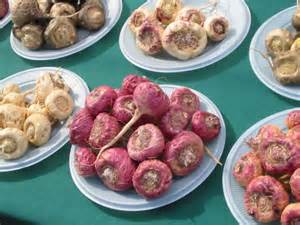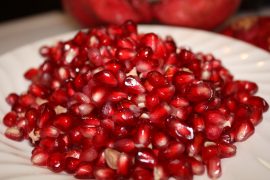If you do any research about superfoods no doubt you will run across information about Maca. This amazing little root has numerous benefits such as increasing stamina, boosting energy levels, increasing your libido, strengthening your immune system, improving your mood and to be honest, the list just keeps going. With all the health benefits it offers, it’s no surprise that maca has become increasingly popular.
Maca is an “adaptogen”. Many herbs, plants and other natural substances have adaptogenic properties, meaning they help the body naturally adapt to various stresses such as illness, hectic schedules or a demanding job.
The origin of maca
Maca is a native food in the Andes Mountains that has been enjoyed by native cultures such as the Peruvians and Incans. For centuries native peoples have enjoyed the benefits of maca for everything from energy, strength, fertility, libido and for its wonderful taste.
Maca looks like an oversized radish. It is part of the cruciferous family, which includes broccoli, radish, cabbage and watercress. Maca has a wonderful nutty taste. The powder is a wonderful edition to many raw recipes, smoothies and even ice cream.
Nutrition of Maca
Maca root powder is a nutrient rich food that is comprised of approximately 14% protein, 71.4% carbohydrates, 3.6 % fat, and 7.1 % fiber (indigestible carbohydrates). In addition maca offers powerful nutrition benefits:
Over 20 amino acids, including 8 essential amino acids
20 free-form fatty acids (such as lauric, linolenic, palmitic acid, oleic, and steric acid)
Vitamins B-1, B-2, C and E
Calcium
Copper
Iron
Magnesium
Manganese
Phosphorus
Potassium
Selenium
Sodium
Sulphur
Zinc
Incorporating maca into your diet
Maca is available in many forms, including powders, tinctures and capsules. You can enjoy maca in smoothies, soups, salad dressings, teas, coffees, cocoa or sprinkled on snack foods.
Its best to start with small doses such as ½ teaspoon a day and gradually work up to a teaspoon or so a day. While some people experience side effects, they are usually related to detoxification.
Additional science based health benefits:
PCOS-Maca can help to control estrogen levels, which is also important in improving PMS and Menopause symptoms.
Increases Energy– Regular consumption of maca increased cycling time performance in endurance athletes.
Improves Fertility– Maca supplementation improves sperm quantity and quality.
Increases Sexual Desire– This study shows that Maca enhances sexual desire.
Reduces Depression-Consumption of maca reduces psychological symptoms, including anxiety and depression.
Postmenopausal Women-Consumption of maca lowers measures of sexual dysfunction in postmenopausal women, as well as reducing anxiety and stress.
Menopause Symptoms– Maca has been used for centuries in the Andes as an adaptogenic plant to manage anemia, infertility and female hormone balance.
Memory and Learning Abilities– The black variety of maca has beneficial effects on learning and memory in experimental animal models.
Bone Health-Both red and black maca have protective benefits on bone health.
Osteoporosis-Supplementing with maca has potential preventative effects from postmenopausal lipid abnormality and bone metabolism.
Improved Cholesterol– This study shows the benefit of maca in significantly decreased the levels of VLDL (very low density lipoproteins), LDL (low density lipoproteins), and total cholesterol.
Maca Recipes
Chocolate Maca Almond Protein Milk
Spiced Chocolate & Coconut Milk
Chocolate Coconut Almond Smoothie
Additional References:
https://www.themacateam.com/maca-studies-and-research
http://science.naturalnews.com/maca.html








